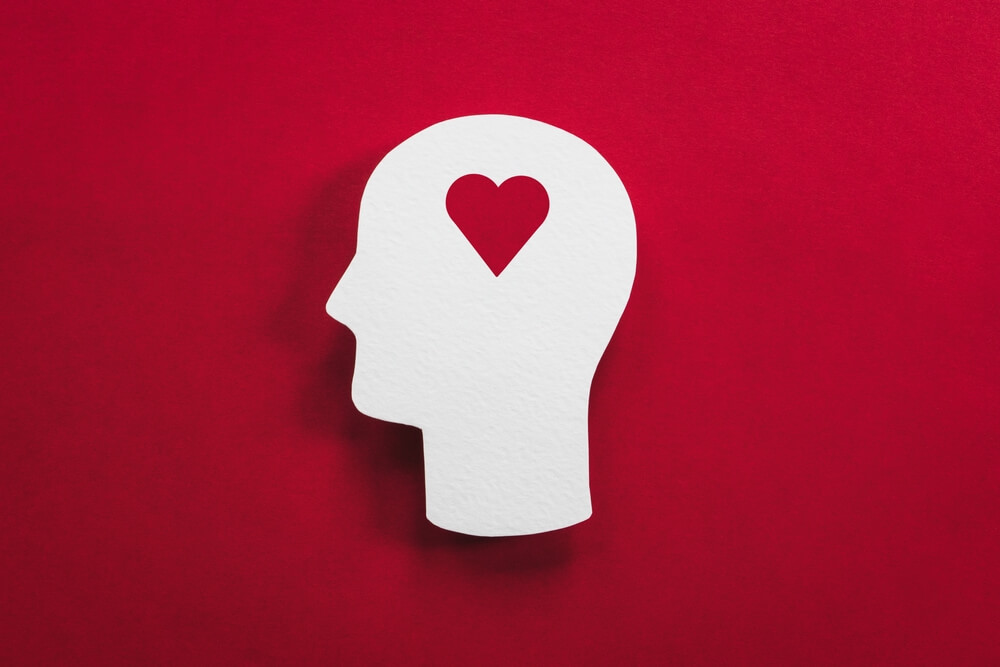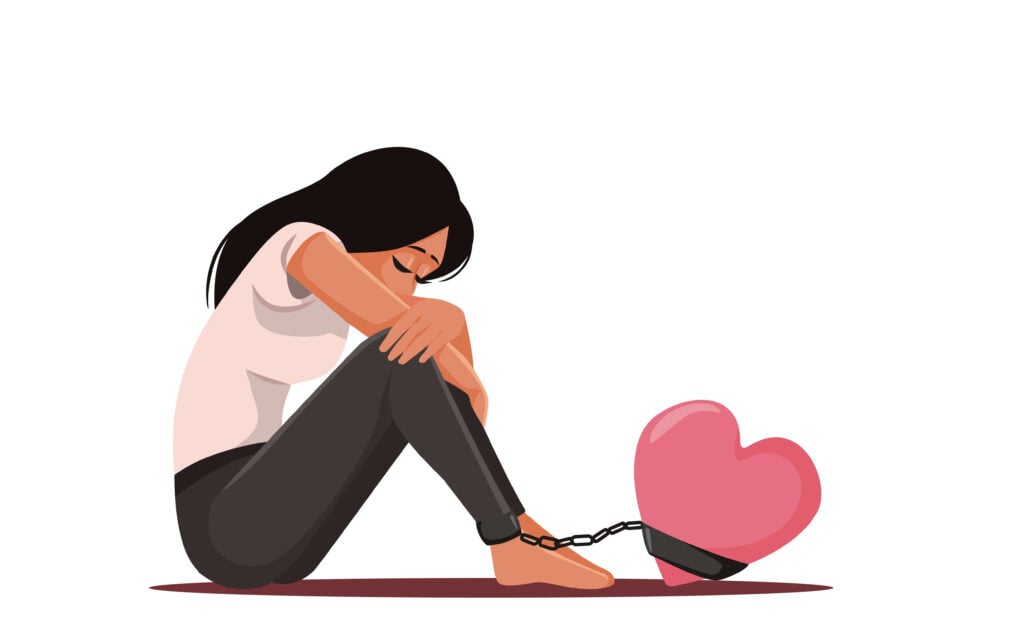The ultimate goal every human being strives toward is a concept each and every one of us is intimately familiar with – to love and be loved. It’s a necessity so basic, a desire so deeply ingrained into the very core of our being that we can’t help and give our all to fulfill it.
However, sometimes, this desire turns into an uncontrollable, obsessive craving. When that happens, pursuing love becomes a desperate quest for validation and acceptance at all costs and by any means necessary.
Some even take it a step further, trying to replicate feelings of euphoria and elation by force instead of letting them happen naturally, at their own time and terms. By doing so, they’re effectively turning the skewed idea of love into a potent drug, which leaves them at risk of facing love addiction.
Fortunately, there is a way to avoid this trap, and it begins by understanding what causes love addiction on a deeper level. However, we do have to note that at PIVOT, we prefer to use the term of attachment dysregulation to explain these and similar problems and solely use the term “addiction” in order to explain why it doesn’t work.

What Makes A Person Addicted To Love?
The most important thing to realize is that there’s no single factor that causes love addiction in a relationship. Instead, it is a combination of numerous biopsychosocial contributors. From individual brain chemistry and genetics to earliest life experiences and societal influences, it is the fusion of these constituents that shapes patterns of behavior and emotional responses.
Considering the sheer complexity and life-defining potential of this phenomenon, facing love addiction warrants a deep dive into each of these factors.
Biological & Neurochemical Factors
Starting with the basics, there are some elements of our existence we can’t control or have limited influence over, which can set the stage for the formation of love addiction (pathological love).
Genetics & Family History
It is a little-known fact that addiction can be hereditary to an extent. Still, it is confirmed that individuals with a family history of mental health conditions run a higher risk of developing similar or the same conditions in the future.
While pathological love is not classified as a mental illness under “The Diagnostic and Statistical Manual of Mental Disorders, 5thEdition (DSM-5)”, it does share many similarities with “traditional addiction” or Substance Use Disorder (SUD), making similar criteria applicable in both diagnosis and treatment.
Co-Occurring Mental Health Conditions
The impact of mental health conditions (e.g., depression, anxiety, personality disorders, and SUD) on love addiction can be twofold:
- Conditions can develop alongside pathological love, typically worsening the symptoms;
- Pre-existing conditions can be among the triggers that cause it to form.
It needs to be noted that the risk of SUD formation is higher in individuals suffering from love addiction. The reason for this is that they’ll often resort to alternative means of satisfying their need for a “love high” if they don’t receive the affection they crave from a romantic relationship.
Neurochemistry
While the feeling of being in love can seem “divine,” “heavenly,” and “out of this world,” the reality is it’s all in our heads. In this case, quite literally. When we’re in love, our bodies release the so-called “feel good” chemicals, among others: dopamine, serotonin, oxytocin, and epinephrine.
These chemicals target the brain’s reward centers, causing an overwhelming sense of pleasure. The more in love we are, the more active this process becomes. However, in the case of addiction, whether love or SUD, it gets taken to the extreme.
Here, the reward centers become flooded with excessive amounts of feel-good chemicals, causing a euphoric high. However, once the instigator of the process becomes absent, the brain is left deprived of its nourishment, which inevitably leads to a devastating crash.
Learn More About Love Addiction

Aftermath Of Love Addiction Explained
Psychological & Emotional Factors
Moving away from the physical and into the realm of the mental, we have another set of factors that can be considered causes of love addiction.
Childhood Experiences & Attachment Styles
The earliest life experiences define how we form connections with others or, in other words, how we form emotional attachments. Individuals who grow up in a positive environment, where their physical and emotional needs are met, typically develop a secure attachment style, enabling them to form healthy bonds with others.
On the flip side, children who experienced inconsistent love, neglect, or abandonment during their formative years have a tendency to develop insecure attachment styles. Whether it’s anxious, avoidant, or disorganized, each of these attachment styles can present a fertile ground for pathological love formation.
Traumatic Experiences & Coping Mechanisms
In some cases, love addiction may develop as a coping mechanism. Typically, this happens as a result of a traumatic experience, which may include (and isn’t limited to):
- Being a victim of abuse, whether emotional, physical, verbal, or sexual;
- Witnessing a deeply disturbing event, such as a violent crime or natural disaster;
- Being exposed to sensory overload or deprivation, for example, intense family conflicts or emotional neglect;
- Dealing with excessive amounts of stress or extreme life challenges.
In these and similar instances, a person may “adopt” love addiction as a way to protect themselves or escape from the harsh reality of life.
Low Self-Esteem
Individuals with a diminished sense of identity and self-worth often turn to external sources for validation and emotional stability. In the case of pathological love, this source is their romantic partner. However, this constant and intense need for reassurance and affirmation typically exacerbates the feelings of insecurity and may even lead to the formation of codependency.
Fear Of Abandonment
Often rooted in past traumatic experiences, fear of abandonment can be the primary cause behind the compulsive need for affection, which is the defining characteristic of love addiction. This fear, whether rational or irrational, may drive the person to cling to their partner desperately, doing everything in their power to avoid abandonment, even if it means sacrificing their own well-being.
Societal & Cultural Factors
Finally, we cannot fail to mention two external factors that shape our perception on a virtually daily basis: society and culture. While the modern world generally views love and romantic relationships in a positive light, it also has the tendency to romanticize them.
In general, this wouldn’t be a problem unless those concepts weren’t driven to the point of extreme. Unfortunately, this is all too common an occurrence that’s becoming more and more prevalent by the day.
Today’s societal and cultural emphasis on love as the pinnacle of happiness can mislead some individuals into believing that their worth is intrinsically tied to their relationship status. However, the pressure to conform to these (unrealistic) norms can be the instigator of compulsive behavior, resulting in what is the cause of love addiction in its most basic form.
What Are The Risk Factors For Love Addiction?
While every person is susceptible to the prospect of facing love addiction, certain groups run a greater risk of succumbing to it. From everything mentioned above, we can easily extrapolate factors that can increase one’s vulnerability to pathological love:
- Insecure attachment styles;
- Childhood trauma;
- Low self-esteem;
- Lack of healthy coping mechanisms;
- Tendency to seek external validation;
- History of dysfunctional relationships;
- Depression, anxiety, or personality disorder;
- Substance use disorder;
- Codependency in a relationship.
It is essential to note that the development of love addiction isn’t predetermined.
There’s a whole myriad of factors that influence how a person responds to these influences, including their own resilience, worldviews, and support systems. Therefore, even if a person exhibits one or more or all of the above traits and behaviors, they’re by no means destined to become addicted to love.
What Is The Root Of Love Addiction?
While causes of love addiction are many and their web intricately intertwined, at the very basis of this phenomenon lies a simple desire for emotional fulfillment. However, unmet emotional needs from the past or present may leave a void, and for someone who doesn’t foster a secure attachment style or healthy coping mechanisms, seemingly the only way to fill it is to seek solace in a romantic relationship.

Turn To PIVOT And Make Facing Love Addiction Easier
At PIVOT, uncovering and addressing the root love addiction causes becomes a transformative and empowering experience. Our team of professionals offers compassionate guidance whether you choose to participate in group workshops or personalized, one-on-one sessions. Reach out to us today, reserve your place at our soothing Glass House Retreat, and begin your journey to lasting emotional wellness.

